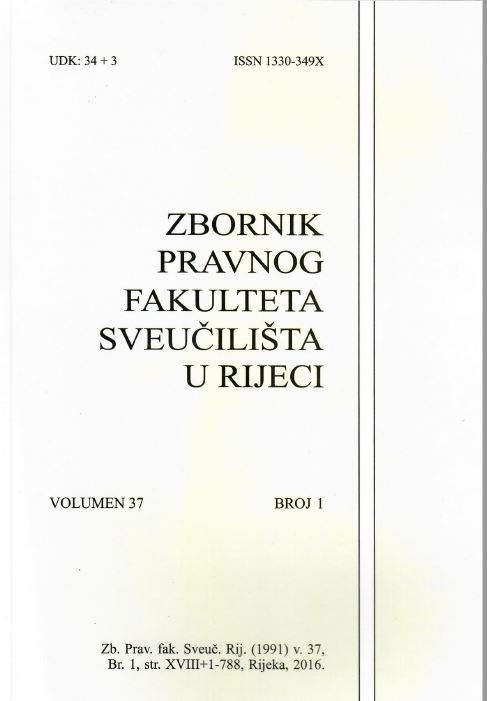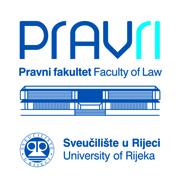CREDERE AND CREDIT
TWO COMPLEMENTARY OR CONTRADICTORY NOTIONS?
DOI:
https://doi.org/10.30925/zpfsr.37.1.12Keywords:
credit contract; consumer credit contract; lien; fiduciary security; residential immovableAbstract
By studying credit contracts secured by real securities, which are, in practice, usually concluded as consumer, i.e. B2C contracts, the authors have become aware of numerous issues in the Croatian judicial practice and legislation. These are primarily a consequence of the complex process of approximation of original national provisions to the European acquis in this area that apart from requiring correct transposition of EU legal acts into the national legislation, also demand the correct application and uniform interpretation of harmonized national law. In that sense, issues arise already when determining the contracting parties, i.e. regarding the questions: who is the consumer and who the trader, i.e. creditor, in B2C credit contracts? There is also the topic of the determination of the object of the contract, i.e. with regard to answering the questions of what is a consumer credit and the crediting of what exactly it relates to. Ambiguities exist also relating to the determination of essential elements of consumer credit contracts, with regard to which there are no clear answers coming either from the practice of the CJEU, or from the domestic court practice. Problems exist regarding the understanding of the duty of courts and other applicants of law about the interpretation and application of positive national law consistently to the acquis, i.e. regarding the manner of pursuing this duty in practice. All the above-mentioned questions become even more complicated, when it comes to credits, whose main claims are secured by a real security. Therefore, bearing in mind the particular difficulties in the interpretation and practical application of harmonized national provisions on consumer crediting and consumer law in general, in this paper the authors try to offer clear and concise answers to numerous key questions upon which the correct application of the previously mentioned legislation depends.
Additional Files
Published
How to Cite
Issue
Section
License
Collected Papers is an open access journal. Journal does not charge article processing charges (APC) to authors. It is licensed under CC BY-NC licence 4.0.
Collected Papers of the Law Faculty of the University of Rijeka" is an Open Access journal. Users are allowed to read, download, copy, redistribute, print, search and link to material, and alter, transform, or build upon the material, or use them for any other lawful purpose as long as they attribute the source in an appropriate manner according to the CC BY licence.
The papers published in "Collected Papers of the Law Faculty of the University of Rijeka" can be deposited and self-archived in the institutional and thematic repositories providing the link to the journal's web pages and HRČAK.
Upon acceptance of the manuscript for publication by this journal, the author can publish same manuscript in other journals only with the permission of the Editorial Board (secondary publication). A repeated publication should contain a notice as to where the manuscript was originally published.



